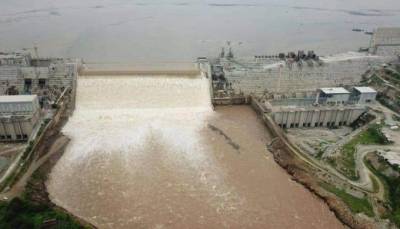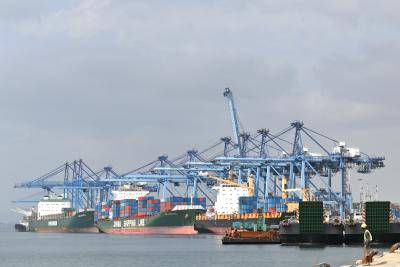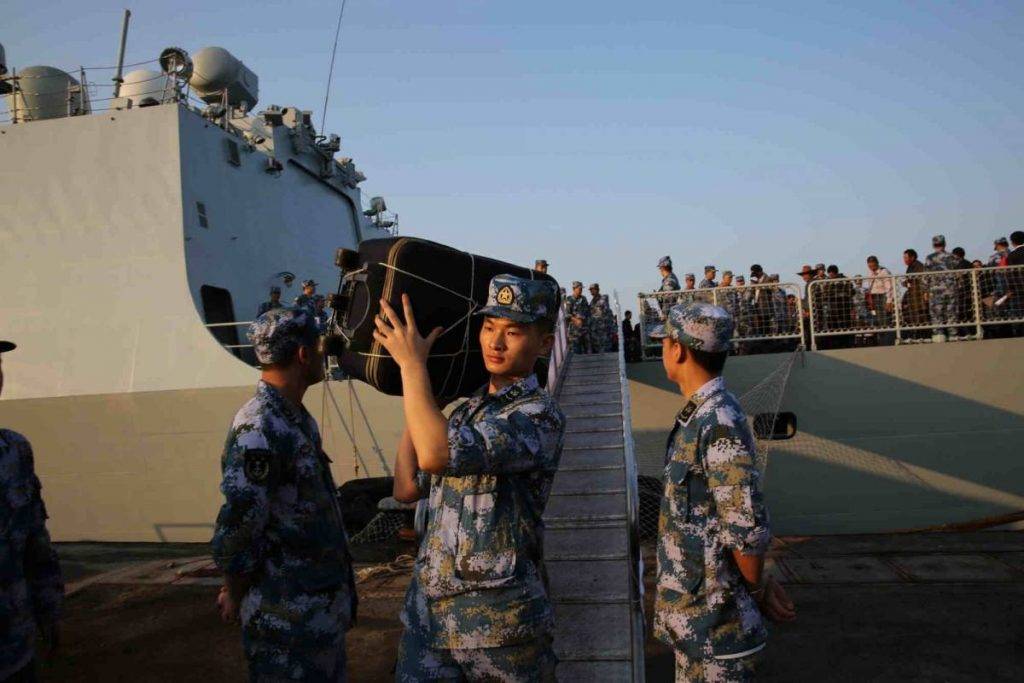There is a flurry of cancellations and reviews of Chinese deals sweeping across the continent from East African nation Kenya to West African state Ghana to Central African nation Democratic Republic of Congo (DRC), reports Asian Lite News
African countries are becoming increasingly wary of Chinese investments with several of them cancelling their contracts on the grounds of being exploitative and unfair deals. Whereas some of the countries have cancelled contracts on shoddy work of the Chinese companies that have become a source of tension and frustration in several nations across the African continent.
There is a flurry of cancellations and reviews of Chinese deals sweeping across the continent from East African nation Kenya to West African state Ghana to Central African nation Democratic Republic of Congo (DRC).
China is increasingly finding itself in a tight corner as most of its projects getting scrapped in Africa are part of ambitious Belt and Road Initiative (BRI) and this is what worries Beijing the most, The Singapore Post reported recently.

It all started with a Kenyan High Court ordered the cancellation of a $3.2 billion contract between Kenya and China for the construction of the Standard Gauge Railway last year in July. The court termed the whole project “illegal”, stating the state-run Kenya railways failed to comply with the country’s law in the procurement of the Standard Gauge Railway.
Cash-strapped Central African country, the Democratic Republic of Congo (DRC) has recently called for a review of mining contracts signed with China. President Felix Tshisekedi has called for the “technical and financial details of Sino-Congolese contracts” by terming it an unfair deal. The DRC President said he wants to get fairer deals for his country. Unhappy with China’s exploitative tendency, he said: “Those with whom his country signed contracts are getting richer while DRC people remain poor.”

In 2008, then Congo President Joseph Kabila, who was in power from 2001 to 2019, signed deals with Chinese state-backed firms. Under the agreement, these Chinese companies were to build roads, hospitals and bridges in the war-ravaged country in exchange for a 68 per cent stake in the joint venture.
The contract also gives the Chinese mining rights to millions of tonnes of copper and cobalt in exchange for investment to rehabilitate crumbling mining infrastructure. Lack of transparency was the issue that shrouded the China-led projects in Congo which the report says makes the deal heavily lopsided in favour of China.
West African nation Ghana cancelled a Chinese investment deal to develop an intelligent traffic management system for Accra, the capital city. It cancelled the project because they found Chinese Everyway Traffic and Lightening Tech’s work not up to any satisfaction. Although, the Beijing-based construction company has brought one of the first known claims by a mainland Chinese investor against an African country, seeking US$55 million from Ghana after its contract was cancelled.

In April last year, Tanzanian President John Magufuli reportedly threatened to cancel a $10 billion project launched by his predecessor, because the Chinese funding came with conditions that “only a drunkard” would accept, he observed. Chinese lenders tend to set more onerous borrowing conditions like higher interest rates, shorter maturities than multilateral development banks.
China has ramped up investment in Africa with a focus on natural resources. A number of nations have been mortgaging their natural resources to secure loans from China, a trend that often ignites debt distress with several countries defaulting.
Angola, the Democratic Republic of Congo (DRC), Ghana, Guinea, Sudan and South Sudan are among the countries in the continent that have used future revenues from natural resource exports as collateral for Chinese loans, a new study conducted by the China-Africa Research Initiative (CARI) at Johns Hopkins University reveals.

Angola and the DRC, which have both used their massive oil and copper resources to secure loans from China, have fallen victim to the collapse of commodity prices, developments that have forced them to negotiate for debt relief.
According to the CARI study, the Chinese and its state-owned financiers committed $153 billion to African public sector borrowers between 2000 and 2019, with at least 80 per cent of the loans going towards infrastructure projects mainly transport, power, telecoms and water.
Over the period from 2010 to 2018, Angola, Ethiopia, Zambia, Kenya and Nigeria were the biggest partakers of Chinese loans cumulatively borrowing $71 billion. In 2019, Ghana was the biggest recipient of Chinese loans at $1.25 billion, followed closely by South Africa and Egypt.
“Rather than continuing to blindly dump finance into countries with debt issues, Chinese financiers have shifted away from these countries towards borrowers with stronger economies and debt management,” states the study.
The study adds that the onset of the Covid-19 crisis has accelerated change to Chinese finance as more borrowers have experienced debt issues and requested debt restructurings.













